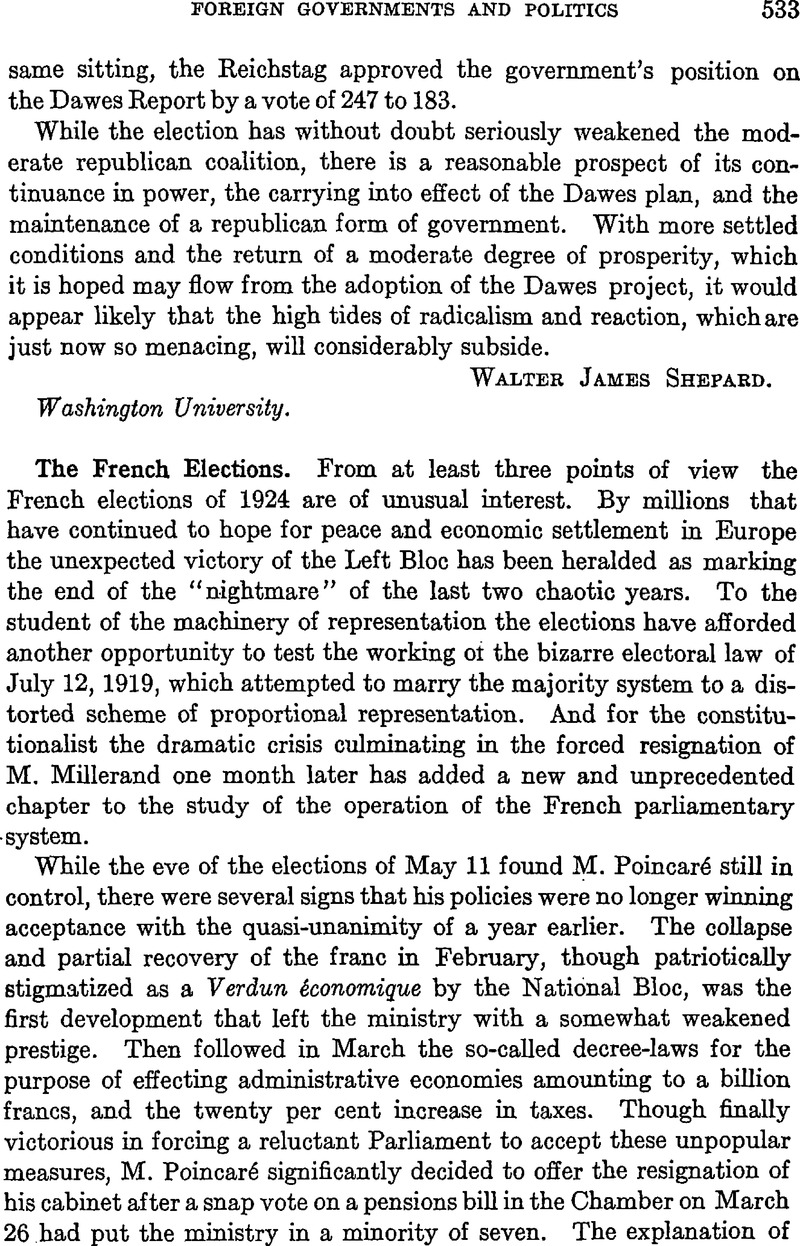No CrossRef data available.
Published online by Cambridge University Press: 01 August 2014

1 The four were Louis Loucheur, François Marsal, Henry de Jouvenal, and Daniel Vincent.
2 He would admit Germany to the League provided she accepted the Dawes plan as modified by the Allied governments.
3 The legal electoral period in France is twenty days.
4 New York Times. May 29, 1924.
5 Cf. his article on “The Socialists and the French Elections,” quoted in Littell's Living Age, May 3, 1924.
6 Le Temps, May 10, 1924.
7 Seventy-five per cent of the British electorate voted in December, 1923. Cf. Morgan, W. T., Note on the British Elections, Amer. Pol. Sc. Rev., May, 1924.Google Scholar
8 These figures account for only 569 deputies: the results of ten seats in the colonies had not yet been received; ballottage was necessary for four seats in Belfort and Alger; one seat in the department of the Nord was still doubtful.
9 This list is given in Le Temps for May 15.
10 These figures are based on the unofficial returns published in Le Temps, May 13, with a few districts either missing or incomplete.
11 M. Georges Lachapelle estimates that the gain of the Left Bloc by the premium thus given to absolute majorities was forty-two seats. Cf. Pinon, Réné, “Chronique politique,” Revue des Deux Mondes, June 1, 1924.Google Scholar
12 In the elections of November, 1919, twenty departments elected candi dates by absolute majority, or thirty-five per cent of the whole Chamber. Cf. Esmein, A., Eléments de Droit constitutionnel (7th edition, Paris, 1921) II, 317.Google Scholar
13 The proportional principle operated more effectively in urban than in rural districts.
14 Pinon, , Revue des Deux Mondes, June 1, 1924.Google Scholar
Comments
No Comments have been published for this article.